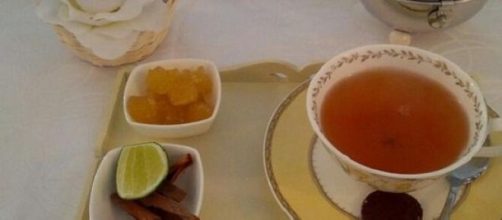Scotland seems to be the place to go to if you're looking for the best cup of tea available on the planet, after a disused sheep farm in Amulree, Perthshire scooped the highly sought after Salon de The Gold Award in Paris last week. The Wee Tea Plantation's entry beat off stiff competition from across the world to clinch the award, with their Dalreoch Estate white smoked tea.
Many would no doubt have thought that it would be necessary to travel a little further afield, perhaps to the more commonly favoured tea plantations of India or even China, if you were looking for the perfect blend for your early morning cuppa, but not so it seems.
Not that the winner is a cheap offering to the market, as to sample the delicious brew will cost you around £10 per pot at the Balmoral Hotel in Edinburgh. To purchase a tin of loose leaf would leave you no change out of £35 for just 15 grams, from a reputable seller such as Fortnum and Mason.
Their story dates back to 2011, when the plantation's owner, Tam O'Braan, embarked on a mission to convert a sheep farm that was failing to make financial sense anymore. He began with just three plants initially and £140,000 to make the new business direction work. It was not a decision he made lightly, as he had belief that the Scottish climate and conditions were conducive for growing quality tea.
Drawing upon the assistance of his wife, Grace, they were able to propagate around 2,000 cuttings and perhaps as a sign of the love and care required to cultivate the crop, it was Valentine's Day last year when they first began to produce shoots.
Their prize winning tea does have connections to India and China, as the camellia sinensis tea plant is more commonly grown in countries such as those.
However, the plantation in Amulree is well-suited to tea growing given the clean Scottish air, quality soil and of course the fresh spring water of which Scotland is famous.
Mr O'Braan is a scientist by profession and formerly worked for The World Food Programme, helping several areas around the world with the growing of their crops.
He travelled to Wuhan as part of his work, where the tea growing has certain similarities to the estate in Scotland, as the height above sea level is comparable between the two.
As if to tempt the BBC reporter who interviewed him, Mr O'Braan, who is originally from Northern Ireland, said that the very distinct tea "has a very subtle unique flavour similar in nature to a peaty whisky." Now that is indeed something worth drinking to.
